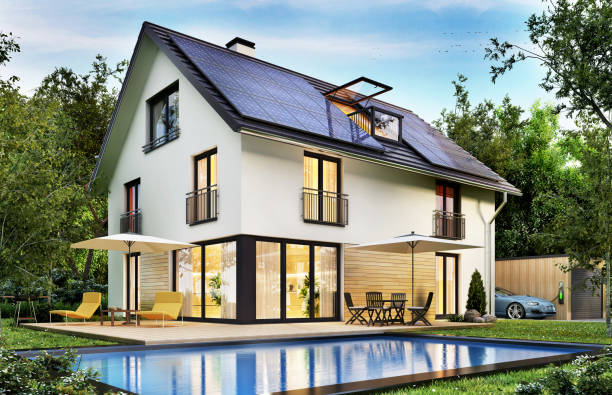Cities want to have regenerated buildings and to use data to optimize energy consumption. Smart city will consider the use and management of resources in buildings and utilities such as waste, water, and energy. Efficient smart infrastructure will evolve with a focus on a people-first construction approach. This will assist city leaders in implementing a more holistic well-being concept. It will contribute to a higher quality of life through smart and sustainable buildings as well as well-integrated and intelligent city infrastructure.

Sustainable building for a future environment
Smart and sustainable buildings pave the way for environments that do more than just support our way of life. By bringing features, services, and information right to our location, smart buildings will serve as ambient social infrastructure that connects and interacts with occupants to improve their circumstances.
People no longer occupy spaces in smart buildings; instead, they interact with them. Architecture has evolved from designing structures and objects to designing systems and interactions with smart buildings.
Why are smart and sustainable buildings important for cities and their citizens?
Reduce energy, material, and other resource consumption through sustainable construction, smart technology, and optimal data utilization. Sustainability in building materials, energy efficiency, and technology-powered processes would all contribute to a more environmentally conscious approach to construction.
A resilient usefulness and relevance are required for a built environment to be sustainable. Unoccupied energy-efficient buildings are not sustainable. Smart buildings are more adaptable and reconfigurable to changing conditions, and they are more operationally sustainable.
It can provide occupants with digitally enabled services and, ultimately, use data-driven insights about building performance and usage to make improvements and accurately adapt over time.
Furthermore, smart buildings can use these new insights to better understand how building energy performance relates to human activity and floor space. As a result, it will be possible to assess a building’s sustainability and efficiency in terms of supporting user outcomes, productivity, and experience.
Smart and sustainable buildings that can adapt to the needs of their occupants have a positive effect on their physical and mental health. Better air quality and lower environmental noise help occupants improve productivity, decision-making ability, and crisis response, as well as alleviate psychological distress.
Smart and sustainable building and infrastructure practices completely transform the city landscape, making it greener and more appealing. City planners and authorities can assess the overall impact of each new development or building on the surrounding context and social circumstances.